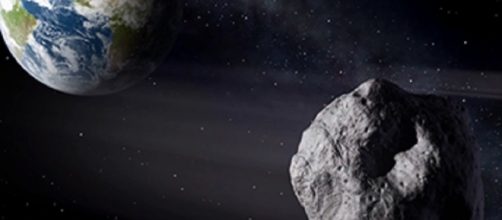"Salvation" is a new summer miniseries that just premiered on CBS. The premise is that a giant asteroid is about half a year from colliding with the Earth. The series will be about the efforts to stop the catastrophe and save the human race. The same Plot Device was used in a couple of big screen films that came out in 1998, “Armageddon” and “Deep Impact.” “Salvation” has a couple of twists on the theme, however. Spoilers follow.
The secret government conspiracy
In “Salvation” the government knew about the impending catastrophe but had chosen to keep the matter a secret.
The president of the United States does not go on national television to announce how a crew of brave astronauts is headed into deep space to stop the asteroid. This device, frankly, strained credulity. A rock large enough to end all life on the planet would be one of the most conspicuous things imaginable. Dozens of observatories would detect it eventually. Keeping it a secret would be impossible. The whole top secret government conspiracy thing is a tiresome plot device in any case.
Two of the characters are based on real-life people
Almost everyone will recognize Darius Tanz, the high-tech billionaire, as a thinly disguised version of Elon Musk, down to the desire to colonize Mars. However, Liam’s faculty advisor, whom the government “disappears”, is likely loosely based on MIT Professor Richard Binzel, one of the leading experts in small bodies such as asteroids.
His absence would certainly be noticed and would need explaining.
Lots of high tech goodness
The series has a lot of high-tech goodness, including holographic projectors, an attempt to stop the asteroid with a gravity tractor, and a scheme for a Mars colony ship. No doubt viewers will be entertained by more of the same as the series continues.
The bottom line
So, as to the decision, watch or don’t watch, which should the gentle reader do? “Salvation” involves an opportunity to look at a ten part series about trying to stop the end of the world and another to nitpick the details. The scenario of a private group of people trying to Save The World where the government failed has a certain libertarian appeal to it.
After all, distrust of the government to do anything right is part of out political culture now. Having NASA save the world is considered so 1990s.
On the other hand, watching the series is going to take ten hours of one's time. Can the series maintain the dramatic tension of the impending doom for an asteroid strike without too many silly plot devices like the government conspiracy? The only way to find out is to stay tuned.


